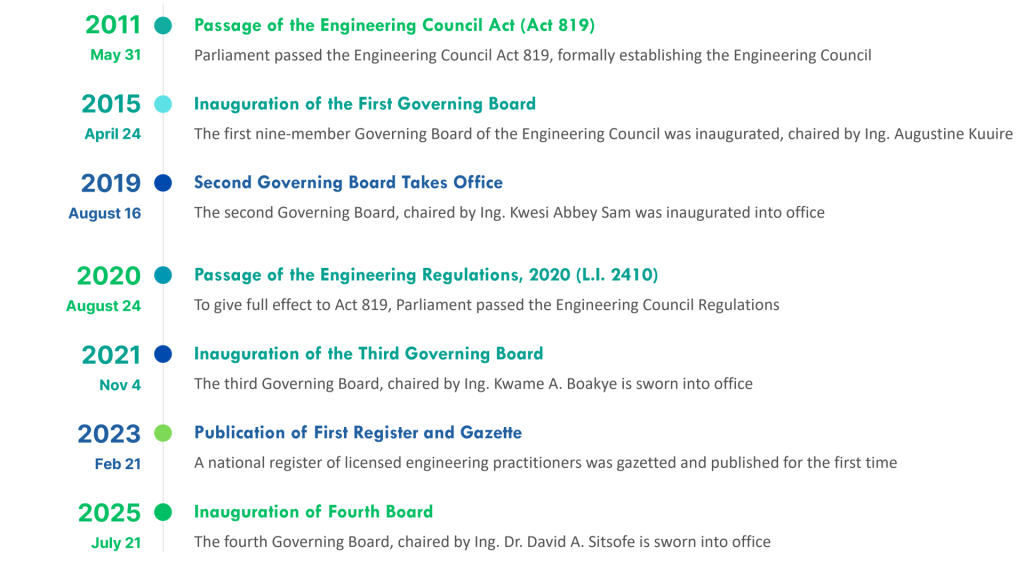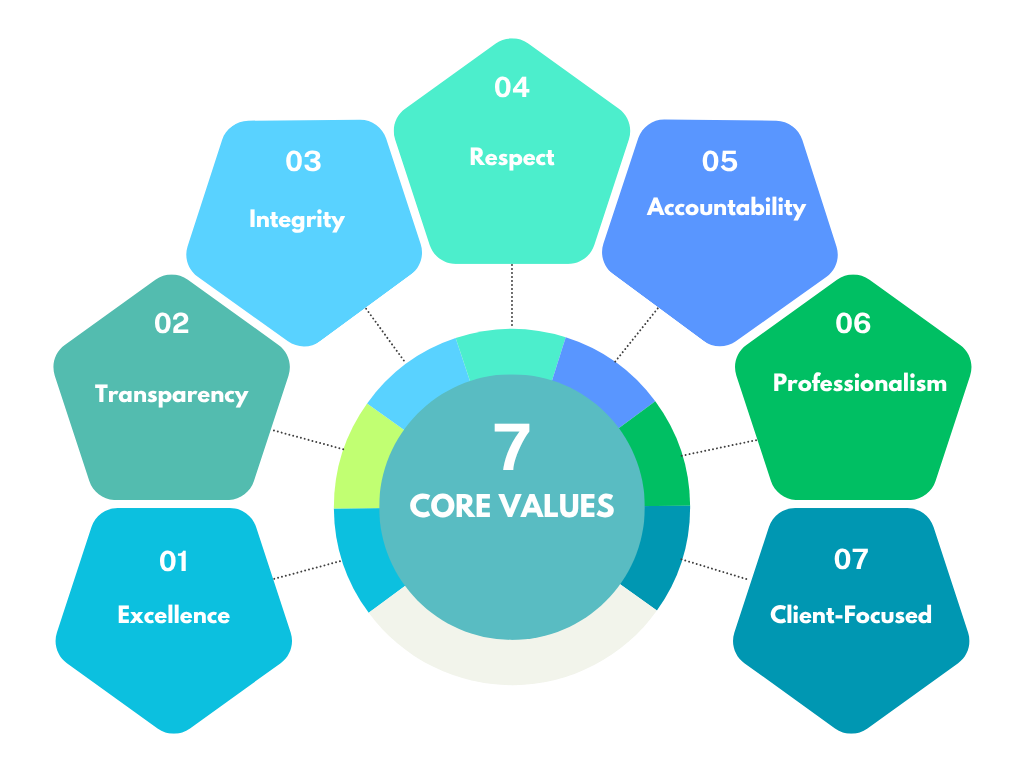- 2nd Floor, AESL Building - Ministries, Accra
- 030 397 5228 | 0303941052
- info@engcouncil.gov.gh
- Complaints
- Advisory Group
The Engineering Council stands as the nation’s premier regulatory authority for the engineering profession. Established under the Engineering Council Act, 2011 (Act 819) and further empowered by the Engineering Regulations, 2020 (LI 2410), its primary mandate is to oversee, license, and regulate all engineering practice within the country. The Council’s mission is to ensure that engineering professionals, engineering firms, and engineering educational institutions adhere to the highest possible standards of competence, ethics, and professionalism. This rigorous oversight is fundamental to safeguarding public safety, fostering sustainable national development, and enhancing the credibility of the engineering sector in Ghana.
Operating as an agency under the Ministry of Works, Housing and Water Resources, the Engineering Council plays an indispensable role in Ghana’s infrastructure and economic landscape. Our work ensures that the critical field of engineering contributes meaningfully and safely to national development goals. By insisting on rigorous standards, the Council builds public confidence in engineering projects, from roads and bridges to water systems and energy networks. It assures the public that the engineers and firms responsible for these vital infrastructures are certified, competent, and committed to ethical practice.
The Council is headed by a nine-member Governing Board that provides strategic direction and policy guidance and supported by six technical Standing Committees.
The Engineering Council is dedicated to advancing the engineering profession for the benefit of all Ghanaians

Engineering Council Act, 2011 (Act 819), established the Engineering Council as regulatory body to regulate the practice of engineering and to provide for related matters.
Engineering Regulations 2020, (LI 2410) provides additional legal basis for the performance of the Council’s functions and make the work of the Council more effective.
Our objective is to secure the highest professional standards in the practice of Engineering in the country.
To ensure the highest professional standards in the practice of engineering in Ghana and promote engineering to advance and enhance the sustainable development of Ghana, Africa and globally.
The Council seeks to be at the forefront of Ghana’s development by being recognized as a world-class regulator and advocate of engineering and its practice.
